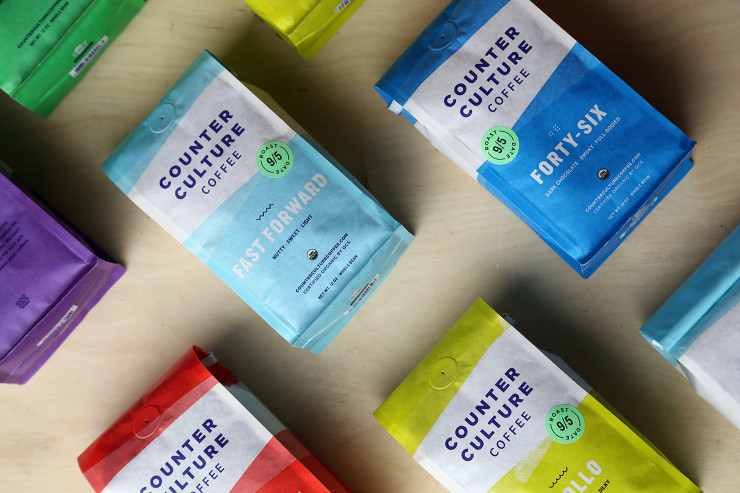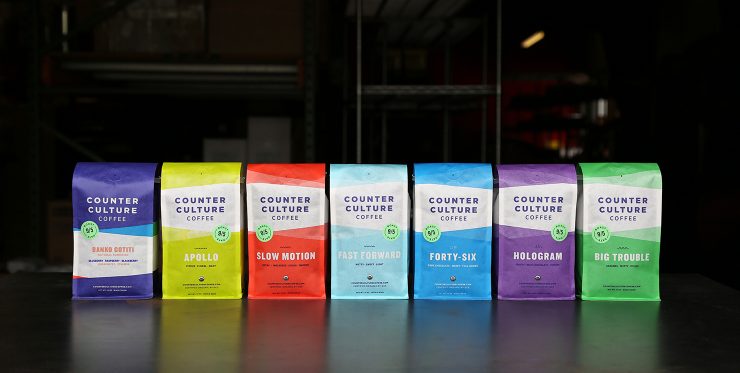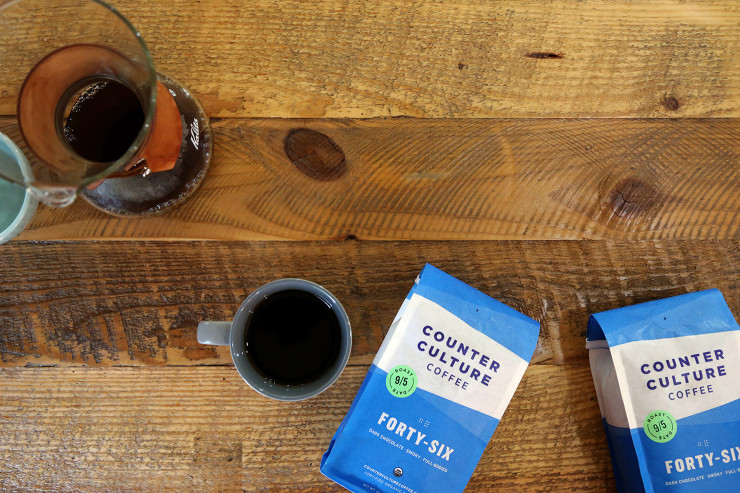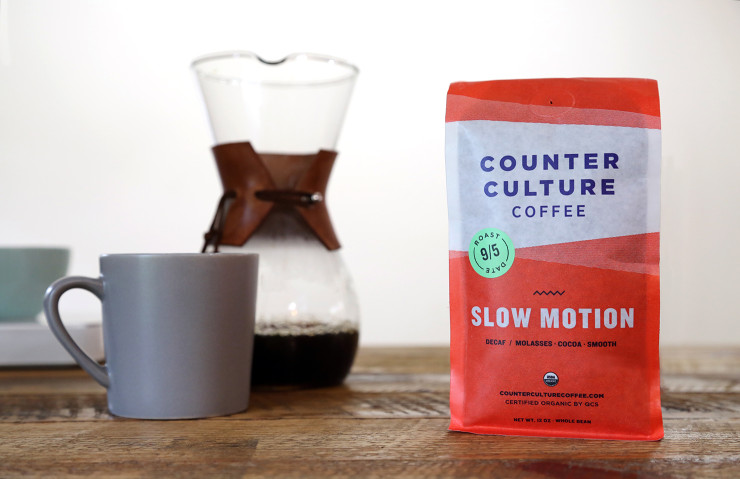A bit of breaking news from the coffee design & branding world, as our friends and partners at Counter Culture Coffee get set to unveil a newly redesigned line-up of coffees on October 3, 2014. This launch is a refresh of sorts for Counter Culture, a leading American wholesale specialty coffee company founded in 1995 and based in Durham, North Carolina.
“A lot of the names and looks were created twelve years ago,” Counter Culture owner Brett Smith told Sprudge in a telephone interview. “The market has evolved, and Counter Culture has evolved, and we felt like it was time to communicate who we are now in a better way.” Smith went on: “Our product line has changed over time and we did it piecemeal. We wanted to approach it from a brand new perspective.” The self-proclaimed coffee geek told us over the years he’s seen “thousands and thousands of coffee bags” and that he felt this design refresh is “something substantial.”
The design was executed in-house by Counter Culture Coffee’s design & marketing team–Nathan Brown, Katie Parland, and Christy Baugh–in a project that took the better part of a year to complete. Over the course of eight months, the team worked with all departments of Counter Culture to highlight, as Smith puts it, the company’s focus on “quality, sustainability, transparency, and education.”
The labels will now feature each coffee’s roast date on the front with a sticker, along with a simplified flavor description on the back.
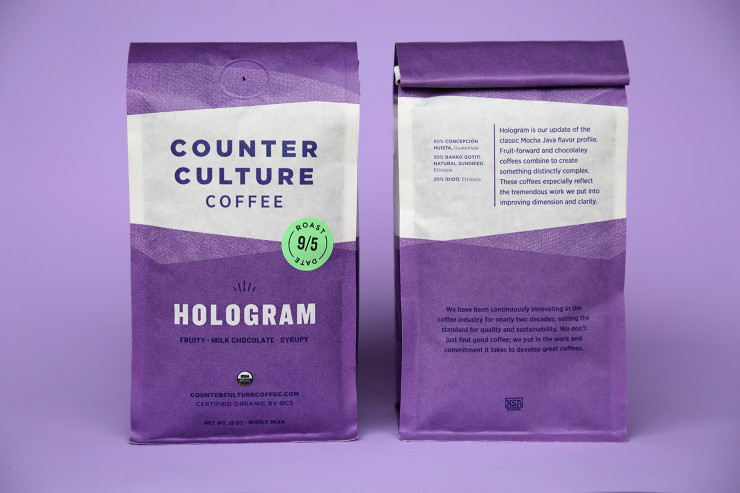
The new, colorful packaging is printed on biodegradable bags, what Smith called “a step in the right direction.” The bag material itself was created by Pacific Bag, a Washington State based company that specializes in sustainable packaging.
Half of the names in the company’s line of year-round blends will change next month. “We felt like some of the names were great but didn’t reflect who we are right now,” Smith told us. “We asked ourselves, ‘Does the name communicate what we do now?’ Apollo did, so we kept that. Forty-Six, we kept that.” But on the chopping block are longstanding, traditionally-named Counter Culture offerings like Rustico, Farmhouse, Decaf Farmhouse, and Toscano, which will now become Hologram, Fast Forward, Slow Motion, and Big Trouble, respectively.
When asked if there were some names thrown out that didn’t stick, Smith laughed, “I think I came up with some really bad ones.”
“We continue to push and put out what we really like,” said Smith, “and we think people will enjoy it.” The new bags and names launch October 3rd.
SprudgeWire press release excerpted in full below:
September 10th, 2014 — Counter Culture Coffee is pleased to unveil a new look for its products, with bold, colorful designs and biodegradable packaging—along with new product names for four of its six year-round coffees. Debuting on Friday, October 3rd, the update reflects the company’s continual evolution as an innovative coffee roaster—a leader within the specialty coffee industry for nearly two decades—and serves as the centerpiece of an overall aesthetic up-fit for Counter Culture that brings greater cohesion to the various facets of their business.
The company will rebrand some of its popular year-round products—replacing the rustic names of Toscano, Rustico, Farmhouse, and Farmhouse Decaf—with contemporary names that better embody the sensibilities and humor of its leadership team:
Toscano becomes Big Trouble–Big Trouble, now outfitted in a bold green bag with an undulating icon, offers nutty, caramel flavors which may seem easy to bring out, but it’s actually one of the most challenging for Counter Culture to source—hence the name—because clean, sweet, low-acidity coffees from small-scale farms can be hard to find.
All photos by Christy Baugh, courtesy of Counter Culture Coffee.


